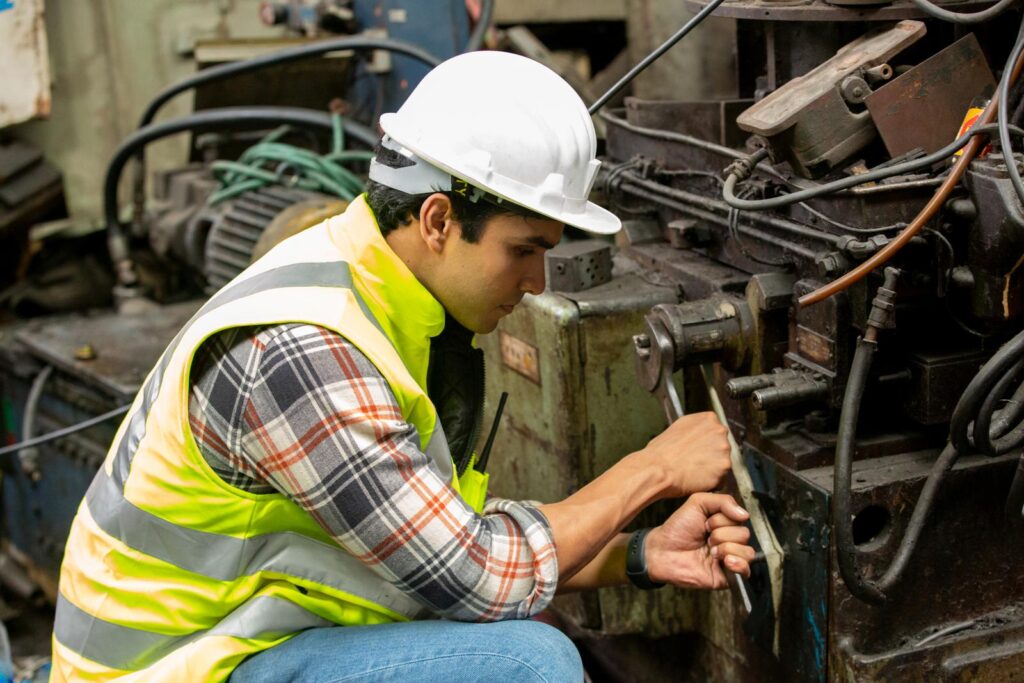Let’s talk about your dream project.
Schedule a free consultation now
When selecting the best filter bag for a specific application, several factors must be considered. The filter bag you choose will depend on the type and size of debris you need to filter, the temperature of the water, and your budget. In this article, we will discuss the pros and cons of different types of non-woven and woven filter bags, including needle felt, multifilament mesh, monofilament mesh, synthetic fibre, and mesh bags, to help you decide which type of filter bag is best for your particular needs.
Needle-felt filter bags are made of densely-woven synthetic fibres and are highly durable and capable of handling heavy loads of debris. However, they are unsuitable for applications involving moisture exposure, as their performance is significantly reduced. They are a great choice for applications where maximum efficiency and long-term durability are required.
Multifilament mesh filter bags are an economical option for filtering applications. They are made of multiple fibres, usually synthetic, woven together to create a bag. They can handle moderate temperatures and provide effective filtration but are not ideal for fine filtration due to poor particle retention. They are often used for industrial applications requiring a low-cost filter bag.
Monofilament mesh bags provide excellent particle retention down to the micron level, making them ideal for applications requiring the highest filtration level. While they come with a higher cost than multifilament mesh, their temperature range is not as limited. Monofilament mesh bags are a great choice for applications that need to filter out small particles but don’t require the highest temperature tolerance level. Because of their higher cost and limited temperature range, monofilament mesh bags may not be the best choice for all applications.
Synthetic fibre filter bags are designed for high-efficiency filtration with excellent temperature resistance. These bags have a finer weave and a much smaller pore size than other filter bags, allowing them to capture particles as small as one micron. These bags are highly durable and ideal for applications requiring a higher level of filtration while still offering a low-cost option. Synthetic fibre filter bags can also handle heavier loads than mesh bags, making them a great choice for heavier debris applications.
Mesh filter bags are a type of filter bag that is made of a woven material, typically made of nylon or polyester. These bags are particularly useful in filtration applications due to their large surface area, which allows for higher flow rates. They are also highly efficient, capturing and removing contaminants from liquids or air. Mesh filter bags are often used in applications where particle retention is not a major concern, as the material can be easily torn or ripped.
When choosing the right filter bag for a particular application, there are a few key factors to consider. Cost is obvious, as certain filter bags may be more expensive than others. Efficiency is another important factor, as the filter bag must perform the desired filtration task. Additionally, particle retention is an important factor to consider, as some filter bags can better filter particles of certain sizes. Finally, the temperature range of the filter bag is an important factor, as each filter bag is designed with a certain temperature range in mind. By considering these differentiating factors, you can ensure that you choose the right filter bag for your specific application.
Non-woven and woven filter bags each have their unique advantages and disadvantages. Needle-felt filter bags are highly durable and can handle heavy loads, but their performance is limited when exposed to moisture. Multifilament mesh bags are a low-cost option but unsuitable for fine filtration. Monofilament mesh bags offer excellent particle retention down to the micron level, but they come at a higher cost and are limited in the temperature range. Synthetic fibre filter bags provide high-efficiency filtration with high-temperature resistance, while mesh filter bags have a larger surface area and provide higher flow rates. Different factors like cost, efficiency, particle retention, and temperature range should be considered when deciding which filter bag to use for a specific application.

Air slides are an ingenious technology that is crucial in many industries. They are used to convey bulk materials, such as powders and granular substances, in a
Learn more
In every industry, maintaining operational efficiency and extending the life span of equipment are critical considerations. With its complex machinery and demanding
Learn more
Filter bags play a crucial role in various industries by ensuring efficient air filtration and dust collection. However, when faced with extreme dust challenges,
Learn more